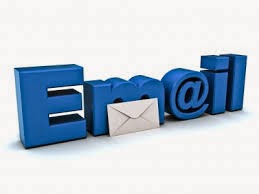--I don't understand why he responded so negatively.
--People always tell me I have a tone. I don't get it!
A common concern people have expressed in my writing classes is that they appear (inadvertently) harsh in their emails. As the above quotes indicate, they don't realize that their word choice and what they include in their emails affect how people interpret their comments.
In an email, you can't rely on nonverbal communication to soften harsh wording, since recipients don't see your face or hear your voice. Following these seven suggestions will help you to eliminate any unpleasant tone in your writing.

1. Include a salutation. Though not technically required in an email, a salutation is a positive way to begin. It makes you sound friendlier. A simple "Hi Sally” or Dear Sally" will start your message on a more pleasant note. Also use a closing comment, such as “Best regards” or “Thanks.”
2. Use positive, not negative, wording. Many emails acquire a harsh tone simply based on the writer's choice of words. Avoid negative words such as failure, wrong, blame, or neglected. Use please and thank you. Emphasize the positive. Listen to the difference in these two statements: “We will be able to finish the work by December 1” versus “We won’t be able to finish the work until December 1.” The meaning is the same, but the second statement makes the information sound negative.
3. Don’t use all caps. Occasionally, I will have someone in my class who doesn't know that writing emails in all capital letters is the equivalent of shouting. People don't like to be yelled out. STOP DOING IT.
4. Go easy on emphasis techniques. Using bold or bright-colored fonts (red, purple, etc.), large fonts, or too many exclamation marks can make you appear aggressive.
5. Make your document easy to read. Do not include too much detail. Don’t keep repeating the same information – you may insult your reader. Use only as many words as necessary to convey your meaning. You want to maintain your reader’s interest so that he or she reads the whole document. Have margins. Use short paragraphs, and vary the length of your sentences.
6. Eliminate any curse words. This is so obvious a point that I shouldn't have to mention it. Unfortunately, my experience has taught me otherwise.
7. Read the email out loud before you hit send. If what you have written sounds harsh to you, it will sound harsh to your reader. Review the above six items, and change whatever is necessary in your email to make it sound less severe. Make sure you do this step – it is important.
Numbers 2 and 6 also apply to eliminating a harsh tone when you speak. Additional information on “polite and powerful” wording can be found in my latest books, The Power of Positive Confrontation (Da Capo, 2014) and The Essentials of Business Etiquette (McGraw Hill, 2013).
Pachter & Associates provides training and coaching on communication skills. For additional information, contact Joyce Hoff at 856.751.6141 or joyce@pachter.com

Individuals ought to bear in mind that your folks going over his or her entrance documents possess examine 1000s of documents. So they really ought to hire each of the possible ways to assure it be noticed because the best. essay thinker for all of the students to prepare term papers or, any college papers.
ReplyDeleteI was looking for something like this…I found it quiet interesting, hopefully you will keep posting such blogs….Keep sharing.
ReplyDeleteneviditelna podprsenka
I'll continually be coming on a regular basis you just read your posts. Cool.
ReplyDeleteA very interesting and specific topic, thank you. I like the way you write.
ReplyDeleteAll the best, Kate from handmadewritings
beats by dr dre
ReplyDeletepolo outlet
los angeles dodgers jerseys
coach outlet online
yeezy boost
yeezy boost 350
christian louboutin
kate spade outlet
mulberry outlet
beats earbuds
20170318caiyan